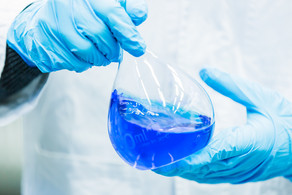Research
How can we define life? While every human can distinguish living matter from dead matter, a completely inclusive and concise definition of life is so far missing. There is widespread agreement about one essential property of life - the ability to reproduce. This process allows heritable traits to be passed from one generation to the next. Mutations, genetic recombination or other sources of genetic variations, however, alter the genetic information and lead to changes of inherited characteristics. This process, better known as Evolution, is the most powerful tool that nature ever provided. It allows living species to adapt to environmental changes and resulted in Earth’s biodiversity that occupies almost every conceivable geological niche.
Evolution, however, also creates many problems. The use of antibiotics creates an altered selection pressure for bacteria, which adapt very successfully in order to resist those drugs. As a consequence, multi-resistant bacteria are on the rise and become an increasing problem for human health. Similarly, many other life-threatening diseases such as cancer, cystic fibrosis or sickle cell anaemia can be traced back to genetic changes. In order to develop novel treatment strategies our group aims to better understand the principles of molecular evolution. Specifically, we want to harness and control the innovative potential of evolution to provide molecular tools for diagnostic or therapeutic applications.





